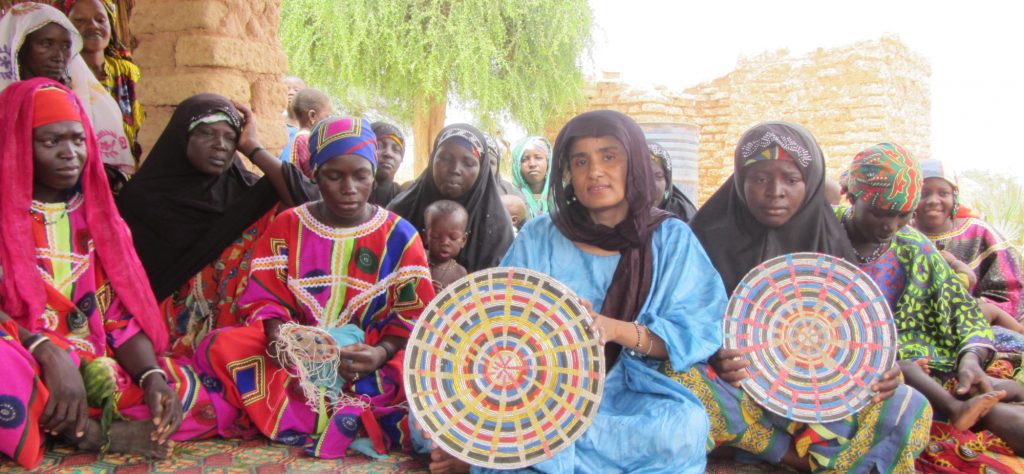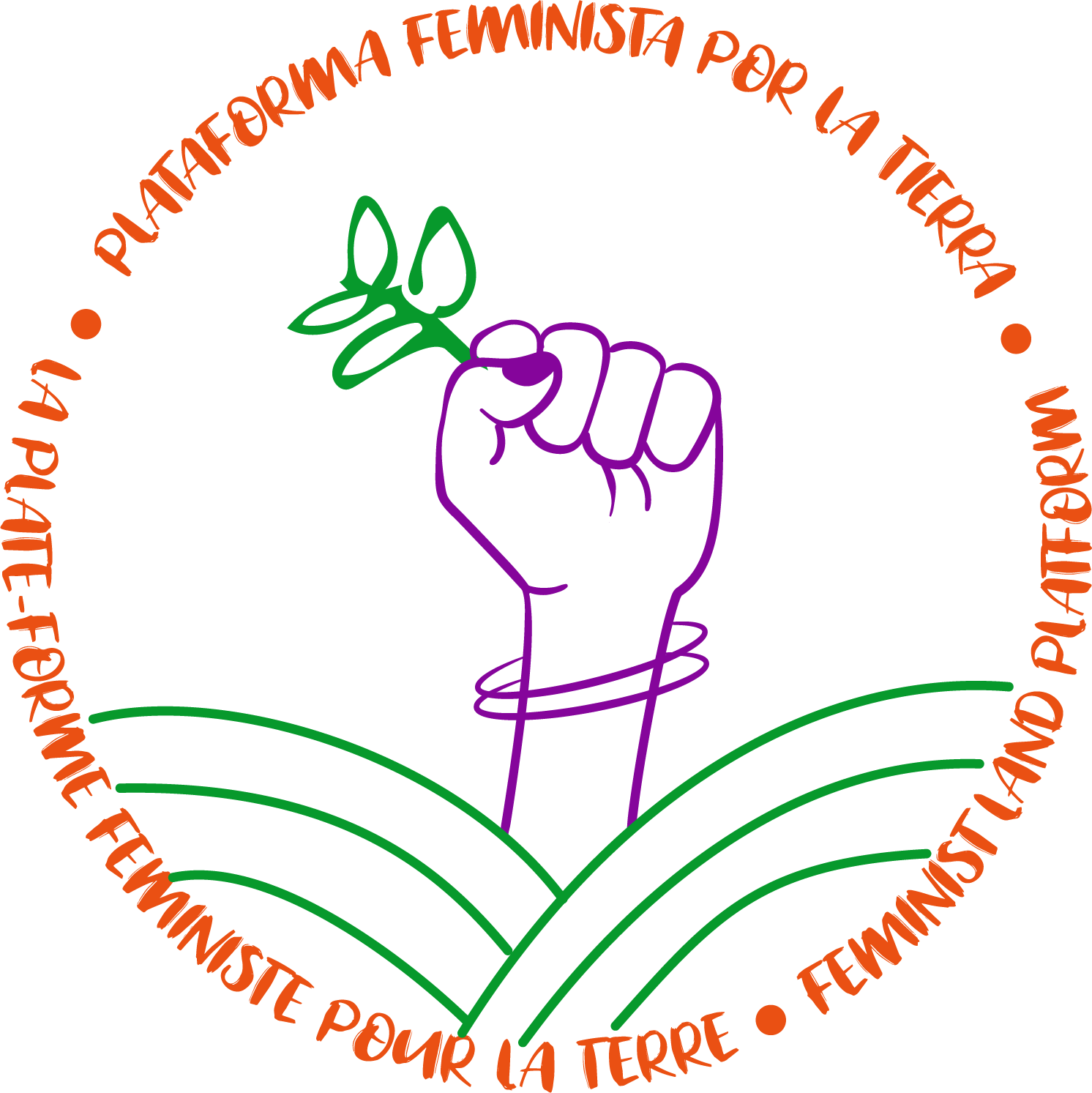Do you know the work of our member organization Tin Hinan, composed of Indigenous women from the Sahel? We interviewed Saoudata Aboubacrine, Secretary-General of the organization, who shared with us the association’s history, its main areas of work, and the strategies they use to overcome challenges in the fight for land and territorial rights. To learn more about Tin Hinan, visit their website.

Can you briefly tell us the history of the organization?
The Association for the Advancement of Nomadic Women (Tin Hinan) was founded in 1994 in Burkina Faso to assist Malian and Nigerien refugee women from pastoralist communities. It was officially registered in Burkina Faso in 1997, in Mali in 2003, in Niger in 2005, and in Canada in 2016.
Tin Hinan is a non-profit organization that gradually shifted its focus toward community development while continuing to provide aid during crisis or natural disasters.
What are Tin Hinan’s main areas of work?
Tin Hinan works for integrated local development, humanitarian assistance, and advocacy on behalf of women, girls, pastoralist and Indigenous populations, and other vulnerable groups. Our main areas of work are:
1. Strengthening recovery and resilience capacities of vulnerable communities and populations through:
- Facilitating better access to means of production and livelihood.
- Promoting an environment conducive to creating a value-added chain for agricultural produce.
- Protecting the environment and combating the effects of climate change.
- Supporting biodiversity protection by strengthening community capacities, raising awareness, and identifying and valuing useful plants.
- Promoting local and family economies, particularly in rural areas, through improved access to microfinance.
2. Promoting human rights, especially for vulnerable groups, through:
- Promoting access to, retention in, and success in schooling for children, especially girls.
- Developing human rights education and strengthening women’s organizations.
- Empowering grassroots communities through literacy and technical training.
- Promoting access to information about health services, especially for women and children.
- Combating gender-based violence (GBV).
3. Strengthening community capacities for socioeconomic empowerment through:
- Improving skills in technology use, production management, labeling, and commercialization.
- Training womenand youth organizations in community life, conflict resolution, social cohesion, and peacebuilding.
- Communication, advocacy, awareness-raising, and sharing of knowledge and experiences.
4. Providing technical services, such as:
- Supporting food security programs for the municipalities of Timbuktu, Ber, and Salam from 2009 to 2012 in partnership with Swiss cooperation, through a capacity-building project on gender, human rights, advocacy, and communication funded by the Fonds Commun Genre (FCG).
- Partnering with the UNHCR in Burkina Faso from 2012 to 2017 to assist Malian refugees.
- Collaborating with the African Development Bank (AfDB) to develop a gender profile.
- The organization also provides assistance to refugees, displaced people, and disaster-affected individuals through emergency relief and community development support activities.
The organization also provides assistance to refugees, displaced people, and disaster-affected individuals through emergency relief and community development support activities.
5. Networking:
Our organization is based in three Sahel countries (Mali, Niger, Burkina Faso) and in Canada, and it is a member of several networks of pastoralist organizations across the Sahel and the world. With the support of Foundation for a Just Society (FJS), Tin Hinan created a platform for pastoralist women with members in various regions and countries. The organization is part of many networks, such as:
- Pastoralist Women of the Sahel in Movement/OAFA
- Feminist Land Platform (FLP)
- Burkina Feminist Collective (CFB)
- International Land Coalition (ILC)
- Burkina Faso National Women’s Coalition (CNF), in partnership with WANEP
- CSO Platform for Sustainable Development and REDD in Burkina Faso
- Alliance for Indigenous Peoples and Local Communities for Conservation in Africa (AICA)
- World Alliance of Mobile Indigenous Peoples (WAMIP)
- International Indigenous Women’s Forum (FIMI)
- African Indigenous Peoples Network (AIPN)
- International Climate Fund Observers Network (SAN)
- Committee on World Food Security (CFS)
- Slow Food Foundation through the Katta Sentinel in Timbuktu and Gao
Tin Hinan also follows climate change negotiations, having participated in COP21, which led to the Paris Agreement, and has since been a regular participant in various climate COPs. The organization has also taken part in biodiversity COPs and COP16 on desertification in Riyadh.
The organization is also a founding member of a cross-border Sahelian peace network of women (from Mali and Burkina Faso), created as part of a project supported by the European Union in partnership with Handicap International (FORCE), aimed at improving the involvement of women in peace initiatives. It was developed from 2014 to 2016.
What are the main challenges Tin Hinan faces, and how do you resist and organize?
Tin Hinan is an organization of pastoralist and Indigenous women operating in the Sahel, a region impacted by insecurity and the effects of climate change. Faced with these challenges, they have developed remarkable adaptation and resilience strategies.
The target communities are primarily women and girls. Despite its vulnerabilities, the association remains active and committed to its various areas of work at local, national, regional, and international levels through the areas of work mentioned above.
How does the Feminist Land Platform contribute to Tin Hinan’s work?
The Feminist Land Platform (FLP) plays a vital role in supporting Tin Hinan’s work. As a member of FLP and other networks, Tin Hinan benefits from field partnerships and advocacy efforts at regional and international levels.
Through the FLP, Tin Hinan has strengthened the capacities of women, girls, and communities in Tin Heiti, Timbuktu region, to access land. The role of women and girls in land conservation and biodiversity preservation has been emphasized, and enriching exchanges between these women and other groups within the Pastoralist Women of the Sahel in Movement Network. These interactions also involved representatives of national institutions, civil society organizations, and experts in environmental and biodiversity conservation, who continue to be our technical and financial partners.
In collaboration with the FLP, and with the support of the Ford Foundation, Oxfam International, and Burkina Faso’s Ministry for Women’s Promotion and Solidarity, Tin Hinan participated in the 67th session of the UN Commission on the Status of Women (CSW) in New York in 2023, alongside other Platform members.
During the IUCN Regional Forum in June 2024 in Nairobi, FLP member organizations from Africa, including Tin Hinan, held a meeting and participated in activities with IUCN and AICA. This event allowed FLP Africa members to share positive experiences, challenges, and perspectives on the Platform’s work across Africa.
In conclusion, the work of the FLP demonstrates the solidarity of women’s and girls’ organizations from the Global South, strengthens local engagement, and fosters dialogue at all levels. This space also enables its members to collaborate with other actors, creating opportunities for broader partnerships.

